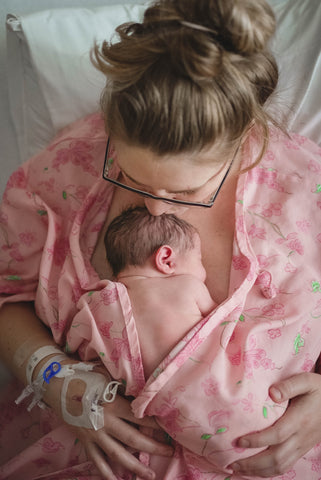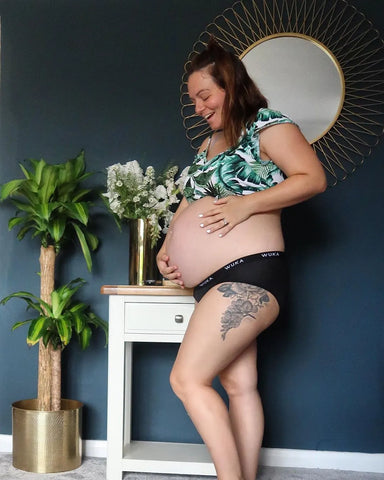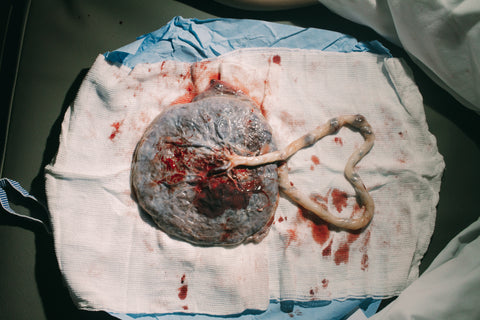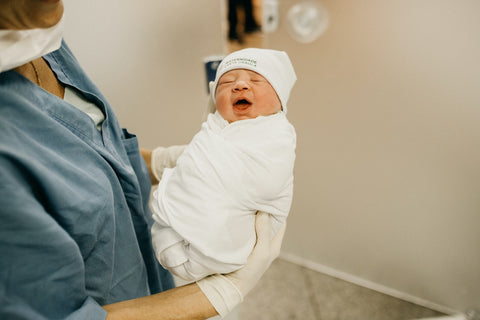Here at WUKA, we believe in adding value by speaking to experts and specialists in all areas concerning women’s health and periods- so that we can bring you honest insights and up to date information.
Recently, we spoke to an NHS paramedic with specialist training in childbirth and obstetric emergencies, to gain an understanding of what happens when the best laid plans go awry. We know that not everyone can make it to the hospital or is able to give birth at home, so hopefully this post can answer a few questions you may have surrounding this.
Why did you decide to specialise in childbirth?
I was lucky enough to spend some time in my teens in Uganda, helping out at a medical clinic in my friend’s village. Whilst there, I met two amazing midwives who were so calm, and who created such an amazing environment for these women to give birth.
When I began my paramedic degree, I soon realised that the training I was receiving in the UK did not match what I had seen being done in Uganda. I decided to do some research to understand what the evidence suggested was the best way to assist women in birth and obstetric emergencies. It’s been a passion of mine ever since, advocating for women to have the best care during pregnancy and childbirth.
What's the main reason for an emergency callout during pregnancy or labour?
In general, people phone for an ambulance because they feel unable to cope by themselves. Luckily nowadays, the NHS has multiple ways of supporting women to have a safe and accessible birthing experience- so I only tend to be called when things have started to go wrong, or not according to plan. Yes, there can be many reasons- but most commonly I see early labour and unexpected bleeding/pain.

According to NHS guidance, bleeding during pregnancy in the first 12 weeks can be a sign of miscarriage, although in most cases it can be harmless. Bleeding in later pregnancy can be due to changes in the cervix, vaginal infections, the start of labour (also called a ‘show’) or something more serious:
- Placental abruption: a critical condition where the placenta comes away from the wall of the uterus.
- Low-lying placenta: when the placenta is attached in the lower segment of the uterus and other near to or covering the cervix. Bleeding can be heavy and treatment must be sought quickly.
- Vasa praaevia: although rare, this is where baby’s blood vessels run through the membranes that cover the cervix, causing problems when your waters break. As the blood vessels also break, blood loss can be very heavy.
If you do experience spotting during pregnancy, always seek medical advice. We also recommend using medium flow period pants to absorb any fluids and to gently support your growing bump.
What's the difference between childbirth training for a paramedic vs a midwife?
They are wildly different. Most Paramedics only receive around two weeks of training, and it’s very basic compared to the understanding and knowledge of a midwife. However, the skill that paramedics bring is an understanding of emergencies, and how to handle big issues.
Often midwives and paramedics will call each other for support and together they make a great team.
How do NHS pressures affect women giving birth?
I have been in the UK ambulance service for over ten years, and unfortunately the demand has increased far beyond the capacity of most services.
Yes, it does have an effect on what we might call ‘minor’ emergencies- and I would always advise to speak to your midwife first so that they can guide you. But if you are concerned, and you can make your own way to hospital then you should, rather than waiting hours for an ambulance.
Having said this, I would like to reassure women that active childbirth is the ‘top category’ of emergency for ambulances across the UK. So, if you find yourself really in need of an ambulance you will be the first to get one.
What advice can you give to expectant mothers?
The best advice I can offer is to listen to your bodies and take care of yourself. Take the opportunity during your pregnancy to really get to know yourself. You are your own expert, and this will help you to feel calm and have the best pregnancy and birth possible for you.
Importantly, it will also give you the confidence to know when something doesn’t feel quite right and get you some support early on.
What can the NHS learn from how other cultures manage childbirth?
What I have seen in other nations, such as African and south Asian countries, is a focus on birth as a natural process- one that doesn’t require over-medicalisation.
The UK has taken notes and improved it’s model in recent years, by moving away from hospitals and opening dedicated birthing centres and by supporting women in the community.
However, I speak to many women who have been terrified by a barrage of information about all the things that can go wrong, despite these being rare occurrences. So, I’d like to see a refocus in antenatal care on supporting women from early in pregnancy to look after their mental health and well-being, regardless of the birthing experience they choose.
Share one of your best moments delivering a baby as a paramedic
I absolutely love being present at a birth, and I have been so lucky to support many women through their birthing. Each birth is different, but one of my favourite moments that happens for most women is the moment that the baby is born, and they have their first skin to skin contact. There is excitement, relief, relaxation and so much love.
If you’re pregnant and unsure of any symptoms you’re experiencing, please don’t hesitate to call your midwife for advice and reassurance. Most issues that arise are usually minor and non-urgent, but if you do find yourself in need of an ambulance, hopefully this post can reassure you a little. Also, check out our postpartum collection - period pants are perfect for supporting your tummy post birth, and to absorb lochia without the need for bulky maternity pads.
Huge thanks to all NHS staff for their amazing hard work and dedication!
Related posts:
What to Pack in Your Hospital Bag
FAQs
Can you call an ambulance if your water breaks?
If your waters break, your first port of call should be your midwife, birth centre or labour ward. Ambulances are there for medical emergencies, so should only be called if:
- You’re feeling a strong urge to push.
- You’re experiencing fresh bleeding, which is heavy enough to soak through two pads.
- You have intense abdominal pain that continues after a contraction.
- You can see or feel baby’s cord protruding from your vagina.
- You’re experiencing another medical emergency- for example breathing difficulties or chest pain.
- Your midwife advises you to call 999.
Is pregnancy considered an emergency?
Normal pregnancy and labour is not a medical emergency,; calling an ambulance isn’t usually required in most instances. If you’re unsure, speak to your midwife or call 111 for advice.


